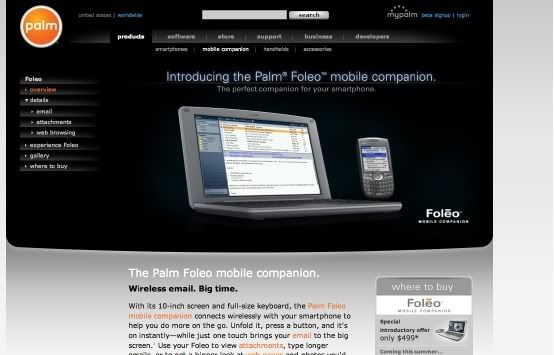Ubuntu CTO Matt Zimmerman has announced plans for a mobile edition of the increasingly popular Ubuntu Linux distribution. The Ubuntu development community will be collaborating with Intel to make Ubuntu a viable platform for net-enabled mobile and embedded hardware devices. According to Zimmerman, detailed planning for the Ubuntu mobile edition will begin at the upcoming Ubuntu Developer Summit, and an initial release is planned for October, to coincide with the release of Ubuntu 7.10, codenamed Gutsy Gibbon. Canonical, the company that supports Ubuntu development, is looking for mobile developers to work on the project.
This announcement comes only one month after the GNOME Foundation, the organization behind the desktop environment used by Ubuntu, announced its own plans for a mobile and embedded initiative. Ubuntu is closely aligned with the GNOME development community and will likely work with GNOME developers to bring together a disparate assortment of mobile computing development projects to make GNOME a more robust and cohesive solution for embedded environments.
A number of prominent hardware and software companies are already adopting open-source Linux and GNOME technologies for mobile and embedded products. Nokia's 770 and N800 web tablet products, the One Laptop Per Child project's XO laptop, FIC's Neo1973 mobile phone, and products that use the Access Linux Platform all leverage various GNOME components.
Intel recently unveiled a plans for a new line of low-energy mobile processors that will supposedly facilitate construction of inexpensive mobile computing devices with exceptionally long battery life. Codenamed Silverthorn, Intel's new processor is said to be one-seventh the size of conventional processors and can operate on one-tenth of the power consumed by conventional processors. Intel CEO Paul Otellini claims that Silverthorn chips will cost less to produce than any Intel product since the 286. Otellini believes that mobile devices built with its new processor and with support for WiMAX will change the way that people use mobile computing devices. At a meeting with analysts, Otellini showed off a new mobile device prototype running Ubuntu.
Zimmerman notes that "a central goal" of the Ubuntu project has been to make user-friendly open-source software accessible to users across the spectrum of hardware products, including laptops, desktops, thin clients, and servers. Now the Ubuntu developers hope to extend support to mobile devices. "It is clear that new types of device—small, handheld, graphical tablets which are Internet-enabled—are going to change the way we communicate and collaborate," says Zimmerman. "These devices place new demands on open-source software and require innovative graphical interfaces, improved power management and better responsiveness."
Labels: Linux, mobile, ubuntu









 T-Mobile, the largest mobile operator in Hungary, will now rely on Google’s search engine technology to power their web’n’walk portal. Previously the domestic Hungarian OK.hu search engine was used for mobile search, but now both T-Online and T-Mobile have made the switch to Google.
T-Mobile, the largest mobile operator in Hungary, will now rely on Google’s search engine technology to power their web’n’walk portal. Previously the domestic Hungarian OK.hu search engine was used for mobile search, but now both T-Online and T-Mobile have made the switch to Google.






 Mobile Twitter has finally arrived, and even better for those users that chose Twitter via SMS. Instead, Mobile Twitter uses data. The only thing missing from this is the auto update of Tweets.
Mobile Twitter has finally arrived, and even better for those users that chose Twitter via SMS. Instead, Mobile Twitter uses data. The only thing missing from this is the auto update of Tweets.  While browsing the internet, the guys from
While browsing the internet, the guys from  Though Vivendi has it's own team to publish mobile games, Blizzard seems to be looking for a mobile producer "...to manage the process of bringing Blizzard-IP-related functions into the mobile space." Does this mean Vivendi is planning to launch their probably most successful title to mobile? Who knows, but I reckon there are a lot of consumers that will buy a new state of the art phone if it means they can continue their game while traveling.
Though Vivendi has it's own team to publish mobile games, Blizzard seems to be looking for a mobile producer "...to manage the process of bringing Blizzard-IP-related functions into the mobile space." Does this mean Vivendi is planning to launch their probably most successful title to mobile? Who knows, but I reckon there are a lot of consumers that will buy a new state of the art phone if it means they can continue their game while traveling.






